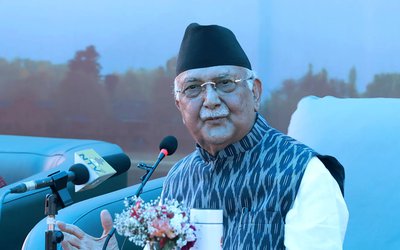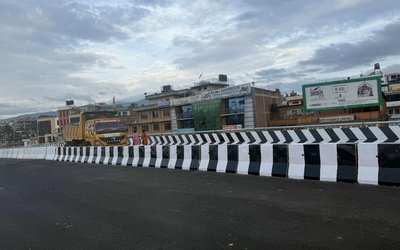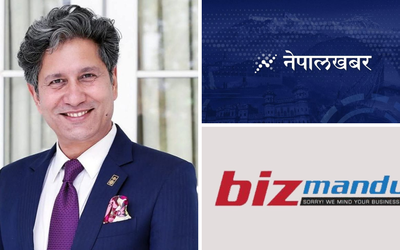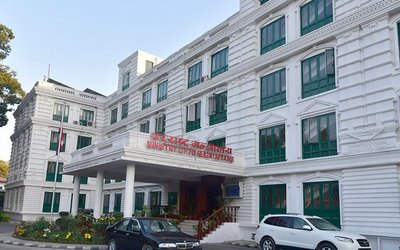More on News





In the transition from conflict to calm, Nepal’s peace process is moving towards its logical end. As Nepal’s longest development partner, Germany has been supporting the country’s efforts to achieve sustainable peace.
Government officials hold the view that GiZ support has a high importance. According to senior government officials, GiZ has worked in conflict affected districts in Western Nepal and had a significant impact in improving the socioeconomic situation in those districts. After the signing of the Comprehensive Peace Accord, the German government was keen to support the peace process and responded quickly to the new situation.
Produced by GiZ, BMZ, Federal Ministry for Economic Cooperation and Development, kfw and zfd, five documentary films display the German contribution to the peace process of Nepal. ‘Promoting Peace’ films tell the stories, especially of the last five years.
In these years, Nepal’s development partners have contributed a lot to the peace process. GiZ is one of the partners involved from the very beginning to implement various projects in Nepal.
After the singing of the Comprehensive Peace Accord in 2006, GiZ implemented several programs in and around the 28 Maoist cantonments. Under Support Measures to Strengthen the Peace Process, GiZ has implemented several projects to improve the living conditions in the communities.
Its projects on providing access to sufficient and safe drinking water project and improving the critical sanitation situation and health services benefited both the Maoist Army combatants and local population. According to the recently released documentary, STPP carried out various programs in the areas providing vocational training for more than 15,000 participants at the local level. Among them, socially excluded group (lower casts) and 30 percent women were shown better options for their present and future life.
Under Improvement of Livelihood in Rural Areas (ILRA) and Reintegration and Reconstruction (ReRe),GiZ has been active in Rukum and Rolpa districts from 2004 to 2010 in the heartland of Maoist insurgency. A replication of ReRe has been started in October 2009 in Nepal’s Far West through improvement of Livelihoods in Rural Areas Program.
As with ReRe, food/cash for work measures employed by the project brought immediate relief to the local people. Roads, water supplies, irrigation systems, schools and service centers were constructed. Food availability improved through agricultural training and improved seeds. The diversification of income sources towards non-farm activities lessened vulnerability and offered opportunities to landless people.
During its implementation, the project sought to ensure all sectors of the community, particularly women, dalits and disadvantaged groups are integrated.
Along with these two, the Civil Peace Service program also helped to bring drastic changes in the society. GiZ has been active in the field of piece building and conflict transformation since 2008. This program mainly aims to contribute to non-violent conflict transformation and social change thereby enhancing access to justice and social inclusion.
Support to Nepal Peace Trust Fund (NPTF) is another project where GiZ has been actively involved from early days. NPTFs main activities are in the field of cantonment and rehabilitation of combatants, support to conflict affected people including internally displaced, strengthening security and transitional justice mechanisms as well as support to the Constituent Assembly and peace building initiatives such as the Peace Secretariat and Local Peace Committees.





